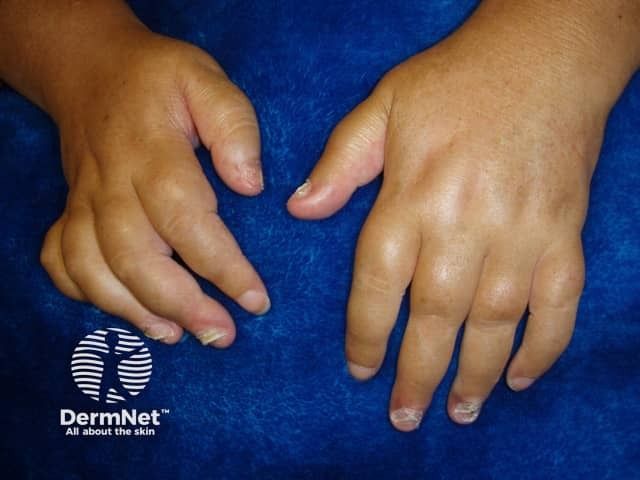- Case-Based Roundtable
- General Dermatology
- Eczema
- Chronic Hand Eczema
- Alopecia
- Aesthetics
- Vitiligo
- COVID-19
- Actinic Keratosis
- Precision Medicine and Biologics
- Rare Disease
- Wound Care
- Rosacea
- Psoriasis
- Psoriatic Arthritis
- Atopic Dermatitis
- Melasma
- NP and PA
- Skin Cancer
- Hidradenitis Suppurativa
- Drug Watch
- Pigmentary Disorders
- Acne
- Pediatric Dermatology
- Practice Management
- Prurigo Nodularis
- Buy-and-Bill
Article
Parents favor genetic melanoma test
The vast majority of parents who tested positive for a genetic mutation that increases the risk of melanoma support genetic testing of their children and grandchildren, Newswise.com reports.
Salt Lake City - The vast majority of parents who tested positive for a genetic mutation that increases the risk of melanoma support genetic testing of their children and grandchildren, Newswise.com reports.
That is one of the results of a two-year study at Huntsman Cancer Institute (HCI) at the University of Utah. The authors say the data could lead to the establishment of formal guidelines for genetic testing of people under age 18.
HCI researchers, led by Sancy A. Leachman, M.D., Ph.D., of the University of Utah department of dermatology, and Lisa G. Aspinwall, Ph.D., of the University of Utah department of psychology, surveyed 61 adults tested for the CDKN2A/p16 mutation, which increases melanoma risk.
Nearly 87 percent said they support genetic testing of minors for melanoma, basing their support on the importance of risk awareness and the likelihood of improved prevention and screening behavior. Participants were surveyed when they received their genetic test results and again two years later - and their attitudes remained the same over that period.
Newswise.com quotes Dr. Leachman as saying, “Developing guidelines for genetic testing of minors is complex and controversial. But knowledge of their genetic status could help them make appropriate lifestyle decisions. For example, a child who tested positive might decide not to choose a summer job that demands lots of sun exposure, such as lifeguard.”
According to the study, ethical arguments related to a child's autonomy and the balance of psychological harms and benefits have been raised regarding genetic testing for minors.
However, most of the study participants’ responses did not reflect these frequently raised ethical concerns. While more than one-third of the participants said they would consider a child’s maturity level in deciding about genetic testing, only two respondents opposed testing of all children because of the possibility of producing worry and stress.
The study appeared in the December issue of Genetics in Medicine.





